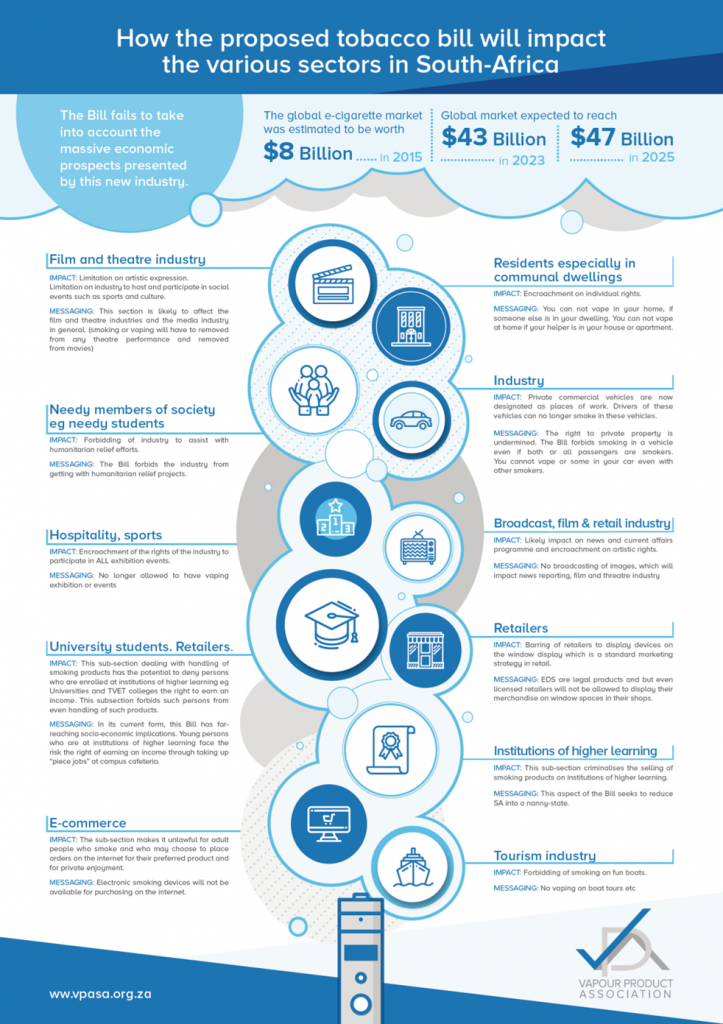
CAPE TOWN – The vaping market, which has created more than 4 000 jobs in the wholesale and retail sectors, is expected to generate an additional 10 000 jobs in South Africa over the next 10 years.
This was according to Vaping Products Association of SA (VPASA) spokesperson, Fidel Hadebe, who said with a growth rate in value terms that was double that of formal tobacco-based products, the industry had positively towards the economy. Hadebe disclosed this during the Vaping Conference 2018 held in Sandton, Johannesburg last week.
He, however, said the Draft Tobacco Bill, if kept as is, would serve as a hindrance to the industry’s growth. “We believe that the Bill as it stands is over-reaching, short of outlawing vaping products. Just to cite one example, the Bill as it stands makes it illegal for traders in vaping products to brand their trading spaces – which they pay rent for by the way.”
Hadebe said bottle stores and car-dealerships are recognisable from a distance through signage but traders in vaping products are not allowed to use this simple identification practice to enable users of vaping products to know where to buy these products.
“Secondly, the Bill seeks to make it unlawful to use e-commerce to process purchases and as you know, e-commerce is the way in which business is being done these days. These are just some of the business concerns we have and we will be robustly engaging the Department on these issues,” he said.
An economic impact study by Canback Consulting, which was released at the conference on Thursday, revealed that the South African market had followed the global trend, although at an earlier stage of development.
The study titled The SA Vaping Market Report found that this growth was further accelerated by the continuous decline of the formal combustible cigarette volume in our analysis. The forecast assumed that tax growth on tobacco products remained consistent with the past five years’ growth rates.
Hadebe said the report was the focused on providing an economic impact study to highlight the growth of vaping in South Africa as compared to other electronic vaping product (EVP) markets and formal tobacco-based products, evaluate the affordability of vaping and the demand drivers that influence consumption and evaluate the socioeconomic impact of vaping with a focus on job creation.
“In addition, we have further evaluated the impact of a significant price increase of vaping through a tax-based scenario, similar to markets where EVPs are taxed equivalent to tobacco-based products,” he said.
VPA chief executive and chairperson, Zodwa Velleman told the conference of health professionals, lawyers and industry experts that lumping e-cigarettes and cigarettes in the same regulatory basket was “unscientific and potentially devastating”.
“Vaping products must be regulated separately. International evidence shows that they are at least 95 percent less harmful based on current evidence and countries that have embraced them, like the UK and the US, have seen their smoking rates plummet in recent years,” she said.
Velleman said the reality was that millions of smokers who might switch to safer alternatives would keep smoking and die instead – as a result of this new law.

Source from www.iol.co.za



